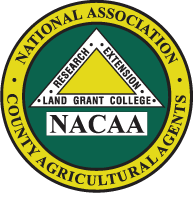COLORADO BEEKEEPER MENTORSHIP PROGRAM: EDUCATING BEEKEEPERS/PROTECTING POLLINATORS
Jones, K. M.11COUNTY DIRECTOR, Colorado State University Extension, SALIDA, CO, 81201
Abstract:
Colorado Beekeeper Mentorship Program: Educating Beekeepers/Protecting Pollinators
K.M. Jones1
1 County Extension Agent, Colorado State University Extension, Salida, CO, 81201
In 2006, the beekeeping industry was alerted to Colony Collapse Disorder, a mysterious disorder in managed hives where 30–90 percent losses were reported. Through reporting of these large colony losses in the popular media, the public became even more aware of the importance of pollinators in our food supply and ecosystems. A new generation of hobby and part-time professional beekeepers was born. The number of new beekeeping clubs and individual memberships in state beekeeping associations continues to grow nationally, and in the Upper Arkansas Valley in central Colorado.
Chaffee County Extension Director Kurt Jones created an official volunteer program entitled the Colorado Beekeeper Mentorship Program with the aim to recruit and train a cadre of volunteers who could work with novice beekeepers and promote scientifically-based beekeeping and integrated hive management principles. Volunteers were selected based on an application and screening process which included reference checks, criminal and motor vehicle histories, interviews, and beekeeping experience. Upon admittance into the program, volunteers participated in a seven-session course. Researchers, extension specialists, extension agents and experienced beekeepers taught classes aimed at mentoring novice beekeepers. Subjects included starting the apiary, equipment needs, safe handling and establishment of bee hives, disease recognition and abatement, bee nutritional needs, high altitude plants, seasonal management needs, and the art of mentorship. The Colorado Beekeeper Mentorship Program was sponsored by CSU Extension, United States Department of Agriculture--NIFA (2017-70006-27289) and Western SARE with assistance from the Central Colorado Beekeepers Association. Evaluations indicated that participants had the greatest knowledge gained in hive health and disease recognition, hive nutrition, and seasonal management activities and goals. In follow-up evaluations in 2019, participants reported spending 39 percent of their time in hive health activities, 37 percent of their time in educational activities, and 24 percent of their time in hive establishment. The total hours reported exceeded 475 hours with a total value of more than $12,100.
